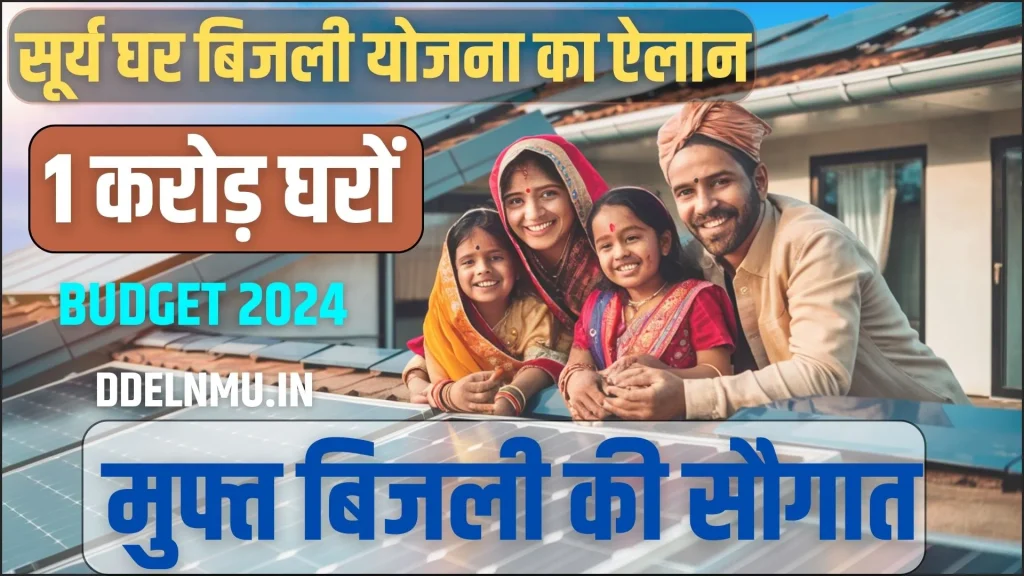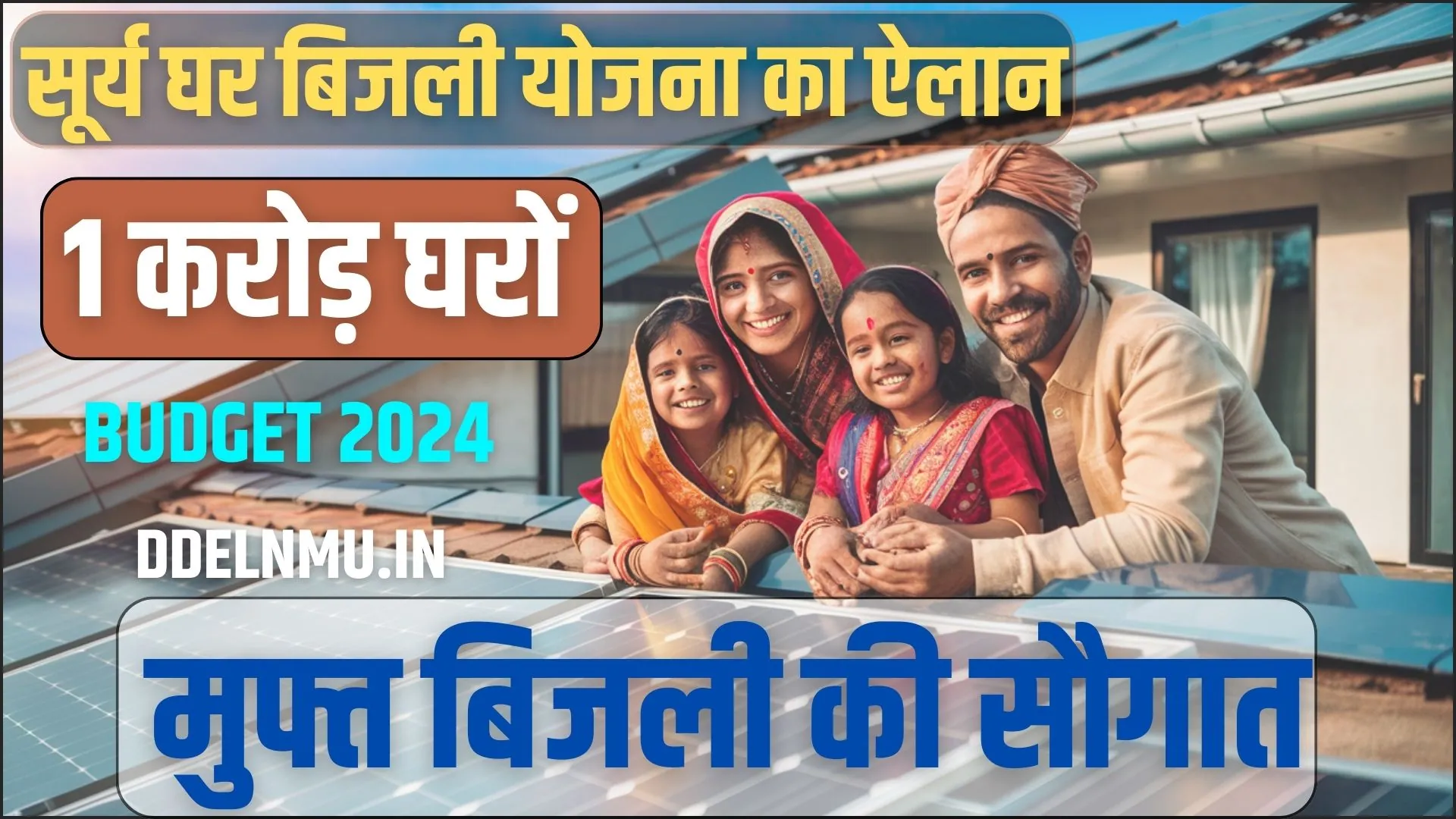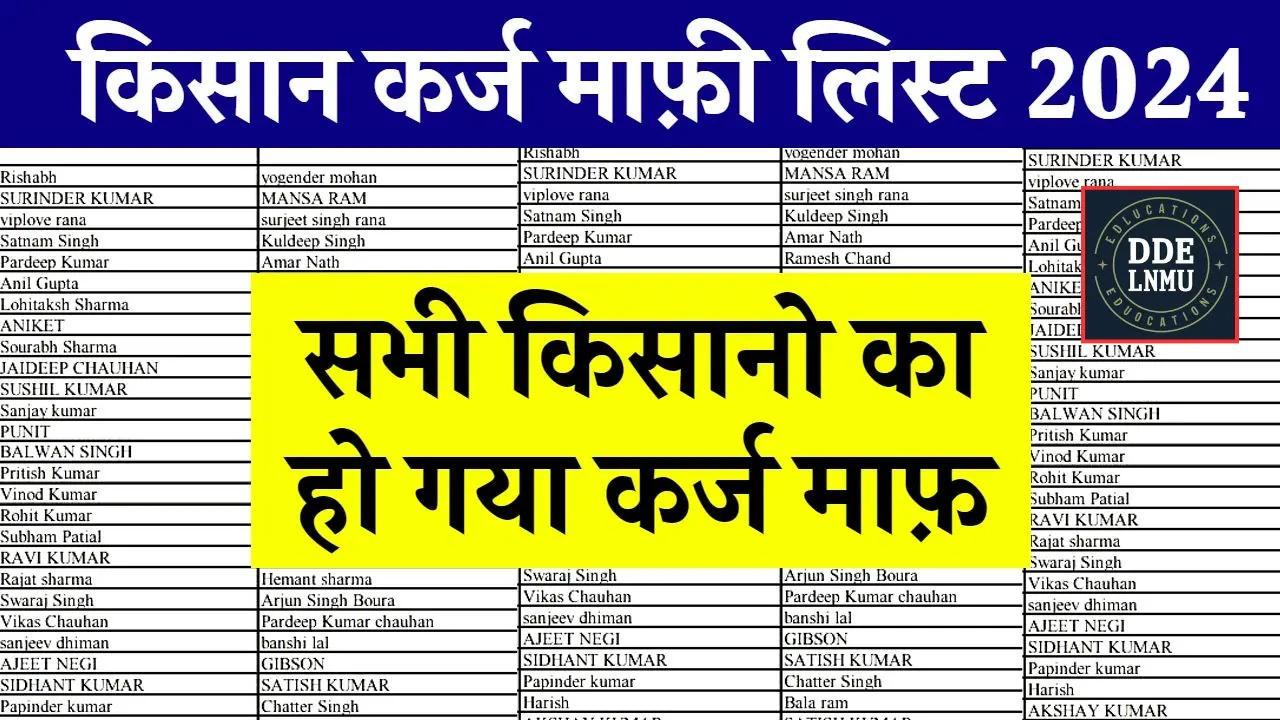PM Surya Ghar Bijli Yojana: The Indian government has taken a significant step towards sustainable energy with the announcement of the PM Surya Ghar Bijli Yojana. This innovative scheme aims to revolutionize household energy consumption by installing rooftop solar plants across the nation. Let’s delve into the details of this groundbreaking initiative and explore its potential impact on India’s energy landscape.
PM Surya Ghar Bijli Yojana: Empowering Households with Free Solar Electricity
The PM Surya Ghar Bijli Yojana, unveiled in the interim budget, is set to transform the way Indian households consume electricity. This ambitious project targets the installation of rooftop solar plants for one crore (10 million) households, enabling them to receive up to 300 units of free electricity every month. This initiative not only promotes clean energy but also aims to reduce the financial burden on families by cutting down their electricity bills.

Key Features of PM Surya Ghar Bijli Yojana
| Feature | Description |
| Target Beneficiaries | 1 crore (10 million) households |
| Free Electricity | Up to 300 units per month |
| Technology | Rooftop solar plants |
| Registration Process | Online application system |
| Environmental Impact | Reduction in carbon emissions |
| Economic Benefit | Savings on electricity bills |
| Energy Security | Increased self-reliance in power generation |
| Job Creation | Boost to solar industry and related sectors |
| Grid Relief | Reduced strain on conventional power grid |
| Long-term Vision | Promotion of sustainable energy practices |
Overwhelming Public Response to Solar Initiative
The launch of the PM Surya Ghar Bijli Yojana has been met with an extraordinary response from the Indian public. Within a short period, the scheme has garnered:
- More than 1.28 crore (12.8 million) registrations
- Approximately 14 lakh (1.4 million) applications submitted
This overwhelming interest demonstrates the public’s enthusiasm for adopting clean energy solutions and their recognition of the long-term benefits of solar power.
Streamlined Application Process
To ensure widespread participation, the government has implemented a user-friendly online application system. This digital approach simplifies the registration process, making it accessible to a larger population and expediting the implementation of the scheme.
Balancing Energy Security and Environmental Sustainability
The PM Surya Ghar Bijli Yojana is part of a broader strategy to address India’s energy needs while prioritizing environmental concerns. The government is committed to developing a comprehensive policy document that outlines appropriate energy transition pathways. This policy aims to strike a balance between:
- Ensuring energy security
- Promoting economic growth and employment
- Advancing environmental sustainability
The Three Pillars of Energy Security
- Availability: Ensuring a consistent and reliable supply of energy
- Accessibility: Making energy resources available to all segments of society
- Affordability: Keeping energy costs manageable for consumers
By focusing on these aspects, the government aims to create a robust and sustainable energy ecosystem that benefits all citizens.
Impact on India’s Energy Landscape
The implementation of the PM Surya Ghar Bijli Yojana is expected to have far-reaching effects on India’s energy sector and beyond:
- Reduced dependence on fossil fuels
- Decreased carbon footprint
- Lower electricity costs for households
- Stimulation of the domestic solar industry
- Creation of new job opportunities in the renewable energy sector
- Increased energy independence at both household and national levels
Potential Challenges and Solutions
While the scheme shows great promise, it may face some challenges in its implementation:
- Initial installation costs
- Limited roof space in urban areas
- Maintenance and repair of solar systems
- Integration with existing power grids
To address these issues, the government could consider:
- Providing subsidies or low-interest loans for installation
- Promoting community solar projects for space-constrained areas
- Offering training programs for maintenance and repair
- Investing in smart grid technologies for seamless integration
Future Prospects and Expansion
The enthusiastic response to the PM Surya Ghar Bijli Yojana suggests a bright future for solar energy in India. As the scheme progresses, there is potential for:
- Expansion to cover more households
- Integration with other renewable energy initiatives
- Development of energy storage solutions
- Exploration of solar applications beyond residential use
By continuing to encourage and support this initiative, India can make significant strides towards a cleaner, more sustainable energy future.
Conclusion
The PM Surya Ghar Bijli Yojana represents a pivotal moment in India’s journey towards sustainable energy. By empowering households to generate their own clean electricity, the scheme not only addresses immediate energy needs but also lays the foundation for a greener future. As more families embrace solar power, India moves closer to its goals of energy security, environmental sustainability, and economic growth. The overwhelming public response to this initiative signals a collective commitment to a brighter, cleaner tomorrow.
FAQ Section
Q: How can I apply for the PM Surya Ghar Bijli Yojana?
A: You can apply online through the official website of the scheme. The process involves registration and submission of necessary documents.
Q: What are the eligibility criteria for the scheme?
A: While specific criteria may vary, generally, the scheme is open to residential property owners who have suitable roof space for solar panel installation.
Q: Will I still be connected to the main power grid after installing rooftop solar?
A: Yes, most installations under this scheme will be grid-connected, allowing you to draw power from the grid when needed and potentially feed excess power back into the grid.







